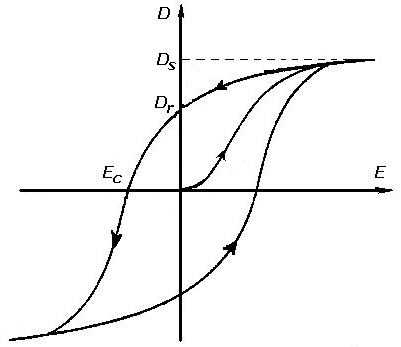Hysteresis (Environmental & Earth Science)
Contents
Hysteresis
Hysteresis is a phenomenon of past actions constraining subsequent choices.[1] To put it another way, hysteresis consists in cumulative causes, through choices made, acting to yield cumulative effects over chronological time (as opposed to mechanical time). Hysteresis is resisted by science wishing to emulate the deterministic ideal of physics in which choices are precluded and uncertainty or contingency, over what may be termed mechanical time (for obvious reasons), is excluded because subsequent states are determined, uniquely, whatever the initial or starting conditions.
The physics
One way physics avoids dealing with hysteresis phenomena is by confining its attention to those properties of matter that are governed solely by present conditions understood in this strict sense: “when ‘present’ is located in Time” is irrelevant; as well, present conditions must be entirely isolated from “past history”. Understood only in this strict sense is it possible to say why present conditions govern the uniform behavior of an atom of hydrogen such that it is irrelevant whether or not, “only an instant before it was reacting with some other chemical element. To put it differently, a combination of temporal states yields no novelty. Doubtless, matter often behaves this way:[2] The world would be strange beyond measure “if drops of water or grains of salt behaved differently according to their individual histories”.
How inimical hysteresis is to the deterministic ideal of physics may be appreciated from the problem of determining consumer behavior for a fixed budget and constant prices. In this case, even if we knew the hysteresis law of a particular consumer (that is, how changing price and income conditions change the consumer’s tastes), then we would still be unable to determine the consumer’s behavior: This result has to do with the fact that the hysteresis law concerned involves a very complex set function that can only be written down on paper, in the abstract, but not actually determined, in practice or concrete: “Set functions cannot be extrapolated in any useful way. Consequently, however large the number of observations, the effect of the last experiment can be known only after we observe what we wish to predict.”
Oedipus effect
An illustration of why set functions cannot be usefully extrapolated is the Oedipus effect:[3] Thus, “if you decide to make up your mind only next Saturday, not before, on how to spend the next weekend, [then] you cannot possibly know now what you will do next Sunday.” As a result, “no analytical device can allow you (or someone else) to describe the course of your future action and, hence, that of the community of which you are part.” After all, one’s preference for a Rolls Royce over a Cadillac may alter if one finds out that a neighbor also intends to buy a Rolls Royce.
Nor is this scenario painted by the Oedipus effect necessarily confined to sentient entities: A little imagination suffices to convince that the interacting choices displayed by consumers in the Oedipus effect could also be exhibited by natural systems. Unlike the case of sentient entities, however, those choices would be unintended. They would be choices, nonetheless. Indeed, such unintended choices, the purposes or intent of which are only distilled in retrospect by sentient beings, can even be exhibited by sentient beings over historical time
Furthermore, counter-intuitively enough, they would be sine qua non to a meaningful life for sentient beings. (See Historical Contingency and Meaningful Lives.)
These considerations offer support forand are reciprocally given support by the judgment of the British astrophysicist, Arthur Stanley Eddington, when he wrote:[4] “ ‘In any attempt to bridge the domains of experience belonging to the spiritual and physical sides of our nature, [chronological] time occupies the key position’ ”.
Line notes
References
- Georgescu-Roegen, Nicholas. 1971. The Entropy Law and the Economic Process. Cambridge, Massachusetts: Harvard University Press. ISBN: 0674257812.
- Prigogine, Ilya. 1996. The End of Certainty: Time, Chaos, and the New Laws of Nature. New York. The Free Press. ISBN: 0684837056. ISBN: 0684837056.
